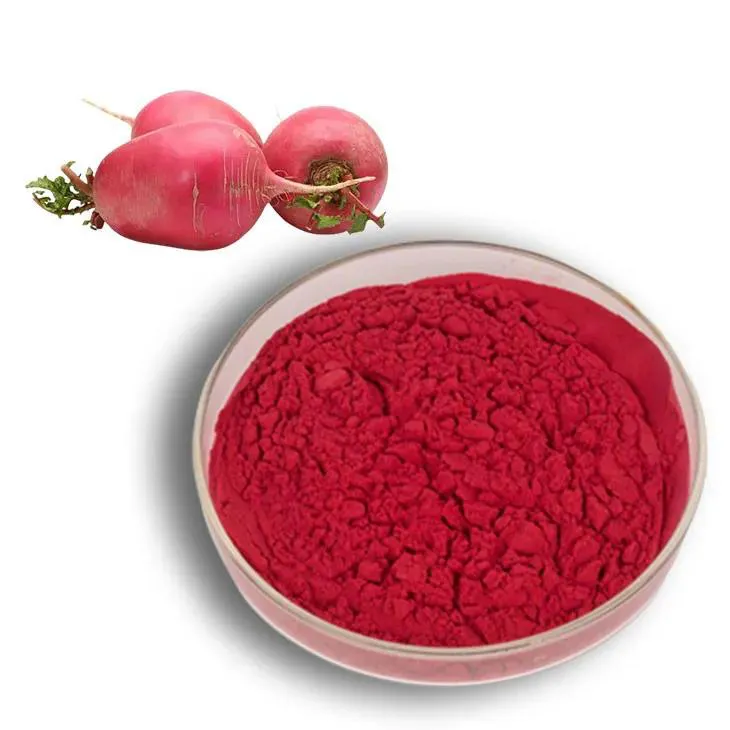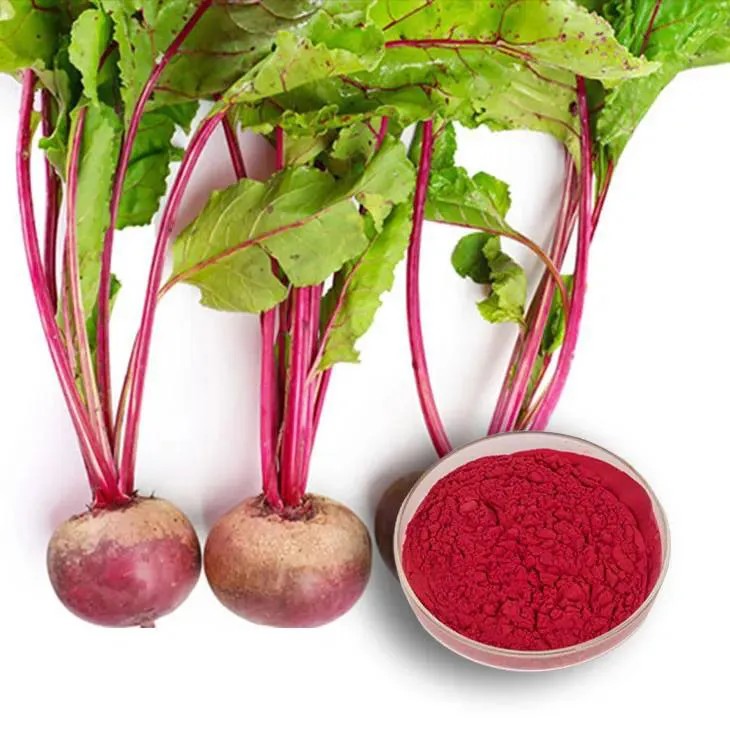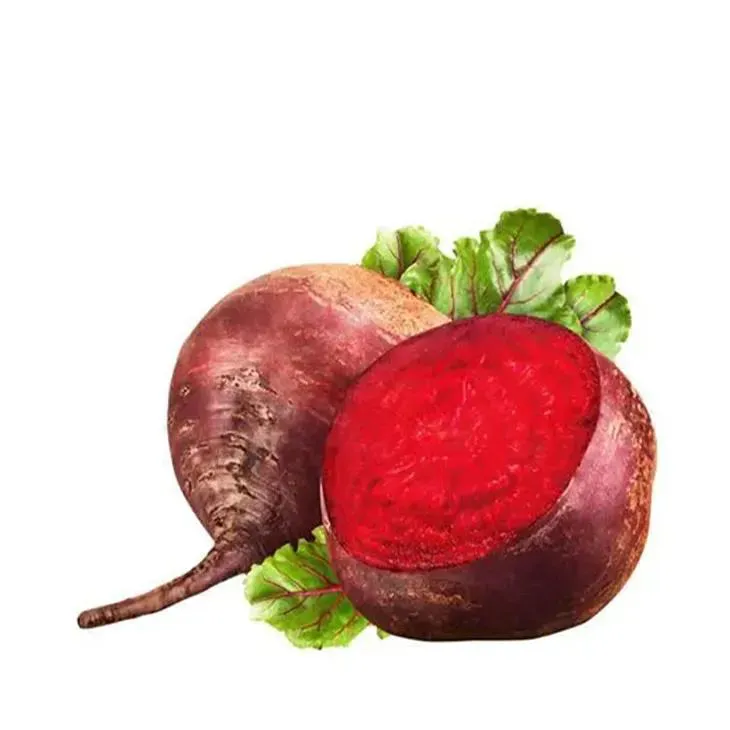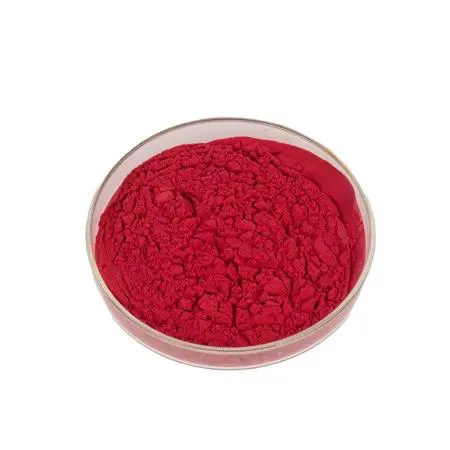- 0086-571-85302990
- sales@greenskybio.com
The Ultimate Guide to Beetroot Juice Powder and Powder: Nutrition, Health, and Cooking Tips
2024-08-09

1. Introduction
Beetroot juice Powder has been gaining popularity in recent years as a convenient and nutrient - dense addition to a healthy diet. This powder is made by dehydrating beetroot juice, which concentrates all of its beneficial components. Beetroot itself is a root vegetable known for its vibrant color and earthy flavor. In this guide, we will explore the nutrition, health benefits, and various ways to use Beetroot juice Powder in cooking.

2. Nutrition in Beetroot juice Powder
Beetroot juice powder is packed with a wide array of nutrients that contribute to overall health and well - being.
2.1 Vitamins
It is a good source of vitamin C, which is essential for a healthy immune system, collagen production, and antioxidant protection. Additionally, beetroot juice powder contains vitamin B9 (folate), which is important for cell division and the prevention of neural tube defects during pregnancy.
2.2 Minerals
One of the prominent minerals in beetroot juice powder is potassium. Potassium helps regulate blood pressure, maintain proper heart function, and support muscle contractions. It also contains magnesium, which is involved in over 300 enzymatic reactions in the body, including energy production and muscle relaxation.
2.3 Antioxidants
Beetroot juice powder is rich in antioxidants such as betalains. Betalains are pigments that give beetroot its characteristic color and have been shown to have anti - inflammatory and antioxidant properties. These antioxidants help protect the body against free radicals, which can damage cells and contribute to various diseases such as cancer and heart disease.

3. Health Benefits of Beetroot Juice Powder
The nutrients present in beetroot juice powder offer numerous health benefits.
3.1 Boosting Energy
Beetroot juice powder can enhance energy levels. The nitrates in beetroot are converted to nitric oxide in the body. Nitric oxide helps dilate blood vessels, improving blood flow and oxygen delivery to the muscles. This can result in increased endurance and reduced fatigue during exercise, making it a popular supplement among athletes.
3.2 Improving Heart Health
Several factors contribute to the positive impact on heart health. The potassium content helps regulate blood pressure, reducing the risk of hypertension. The nitrates in beetroot juice powder also play a role in reducing blood pressure by relaxing blood vessels. Additionally, the antioxidants in beetroot can help prevent the oxidation of LDL cholesterol, which is a risk factor for heart disease.
3.3 Anti - Inflammatory Effects
The betalains in beetroot juice powder have anti - inflammatory properties. Chronic inflammation is associated with many diseases, including arthritis, diabetes, and certain cancers. By reducing inflammation, beetroot juice powder may help prevent or manage these conditions.
3.4 Digestive Health
Beetroot contains dietary fiber, and although the powder form may have a concentrated amount, it can still contribute to digestive health. Fiber helps promote regular bowel movements, prevent constipation, and may also support a healthy gut microbiome.

4. Cooking Tips with Beetroot Juice Powder
Beetroot juice powder can be used in a variety of ways in the kitchen to add both flavor and nutrition to your dishes.
4.1 Smoothies
- Add a spoonful of beetroot juice powder to your morning smoothie for an instant boost of nutrition. It pairs well with fruits like bananas, berries, and apples.
- You can create a "beet - berry blast" smoothie by combining beetroot juice powder, mixed berries, Greek yogurt, and a splash of almond milk. Blend until smooth for a delicious and healthy start to your day.
4.2 Baking
- Substitute a small amount of flour in your baking recipes with beetroot juice powder. It will add a subtle sweetness and a beautiful color to your baked goods, such as muffins or cakes.
- For example, in a chocolate beetroot cake recipe, add a couple of tablespoons of beetroot juice powder. The powder will not only enhance the color but also add a unique flavor profile.
4.3 Sauces and Dressings
- Mix beetroot juice powder with olive oil, vinegar, and your favorite herbs to create a vibrant and flavorful salad dressing. The powder will give the dressing a lovely pink hue.
- You can also use it to thicken and color sauces. For instance, in a tomato - based sauce, add a bit of beetroot juice powder to make it more visually appealing and add an extra layer of flavor.
4.4 Soups
- Stir beetroot juice powder into a vegetable or broth - based soup. It will enhance the color and add a slightly sweet and earthy flavor. This works well in beetroot - themed soups or as an addition to a classic minestrone soup.
- For a creamy beetroot soup, blend cooked vegetables with beetroot juice powder, some cream or coconut milk, and seasonings. The result is a rich and nutritious soup.

5. Conclusion
Beetroot juice powder is a versatile and nutrient - rich ingredient that offers a wide range of health benefits. Whether you are looking to boost your energy, improve your heart health, or add a unique flavor and color to your dishes, beetroot juice powder is an excellent choice. By incorporating it into your diet through various cooking methods, you can enjoy all that this superfood has to offer.
FAQ:
What are the main nutrients in beetroot juice powder?
Beetroot juice powder is rich in several important nutrients. It contains vitamins such as vitamin C, which is important for immune function and skin health. It also has minerals like potassium, which plays a role in maintaining proper heart function and fluid balance in the body. Additionally, it is a great source of antioxidants, including betalains. These antioxidants help to combat oxidative stress in the body, which can be caused by factors such as pollution and a poor diet.
How does beetroot juice powder boost energy?
Beetroot juice powder can boost energy in a few ways. One of the main reasons is its nitrate content. When consumed, nitrates in the powder are converted to nitric oxide in the body. Nitric oxide helps to dilate blood vessels, allowing for better blood flow. This improved circulation means that oxygen and nutrients can be delivered more efficiently to the muscles, which in turn can enhance physical performance and increase energy levels.
Can beetroot juice powder really improve heart health?
Yes, beetroot juice powder can contribute to improved heart health. The nitrates in it, as mentioned before, are converted to nitric oxide. This nitric oxide helps to relax and widen blood vessels, reducing blood pressure. Lower blood pressure is beneficial for the heart as it reduces the strain on the cardiovascular system. Also, the antioxidants present in beetroot juice powder can help to reduce inflammation in the blood vessels, which is another factor in maintaining a healthy heart.
What are some simple cooking tips for using beetroot juice powder?
There are several easy ways to use beetroot juice powder in cooking. One option is to add it to smoothies. It can blend well with fruits like bananas, berries, and apples, along with some yogurt or milk, creating a nutritious and colorful drink. Another idea is to incorporate it into baking. You can add a spoonful or two to muffin or cake batters for an extra nutritional boost and a unique flavor. It can also be used to make salad dressings. Just mix it with olive oil, vinegar, and some herbs and spices for a vibrant and healthy dressing.
Is there any recommended daily intake of beetroot juice powder?
There is no one - size - fits - all recommended daily intake of beetroot juice powder. However, generally, a small amount, such as 1 - 2 teaspoons per day, can be a good starting point for most people. But this can vary depending on factors such as age, overall health, and specific health goals. For example, athletes may choose to consume a bit more to potentially enhance their performance, while those with certain health conditions may need to consult a healthcare provider before increasing their intake.
Related literature
- The Nutritional and Health - Promoting Properties of Beetroot"
- "Beetroot Juice: A Functional Food for Health"
- "The Role of Beetroot in Dietary Approaches for Heart Health"
- ▶ Hesperidin
- ▶ Citrus Bioflavonoids
- ▶ Plant Extract
- ▶ lycopene
- ▶ Diosmin
- ▶ Grape seed extract
- ▶ Sea buckthorn Juice Powder
- ▶ Fruit Juice Powder
- ▶ Hops Extract
- ▶ Artichoke Extract
- ▶ Mushroom extract
- ▶ Astaxanthin
- ▶ Green Tea Extract
- ▶ Curcumin
- ▶ Horse Chestnut Extract
- ▶ Other Product
- ▶ Boswellia Serrata Extract
- ▶ Resveratrol
- ▶ Marigold Extract
- ▶ Grape Leaf Extract
- ▶ New Product
- ▶ Aminolevulinic acid
- ▶ Cranberry Extract
- ▶ Red Yeast Rice
- ▶ Red Wine Extract
-
Kidney Bean Extract
2024-08-09
-
Saw Palmetto Extract
2024-08-09
-
Agaricus Blazei Extract
2024-08-09
-
Oyster Mushroom Extract Powder
2024-08-09
-
Nettle leaf extract
2024-08-09
-
Acerola Extract
2024-08-09
-
Licorice Root Extract Powder
2024-08-09
-
Cassia Seed Extract
2024-08-09
-
Yam Extract
2024-08-09
-
White Willow Bark Extract
2024-08-09





















